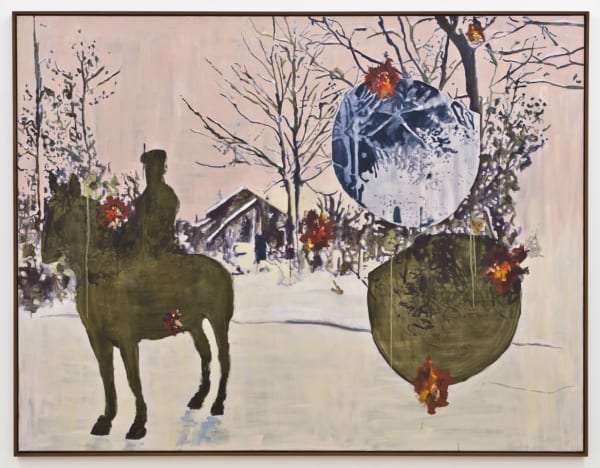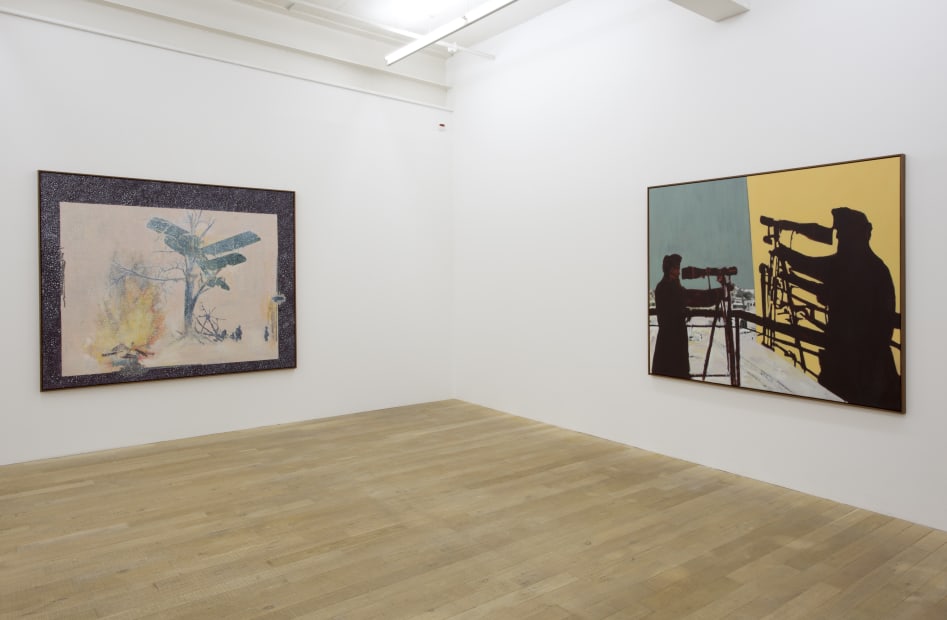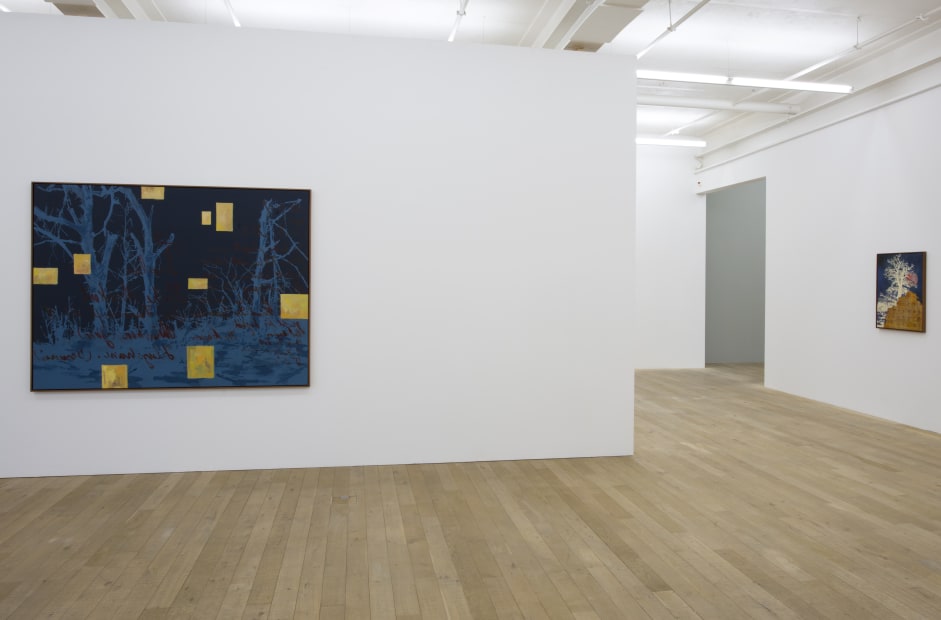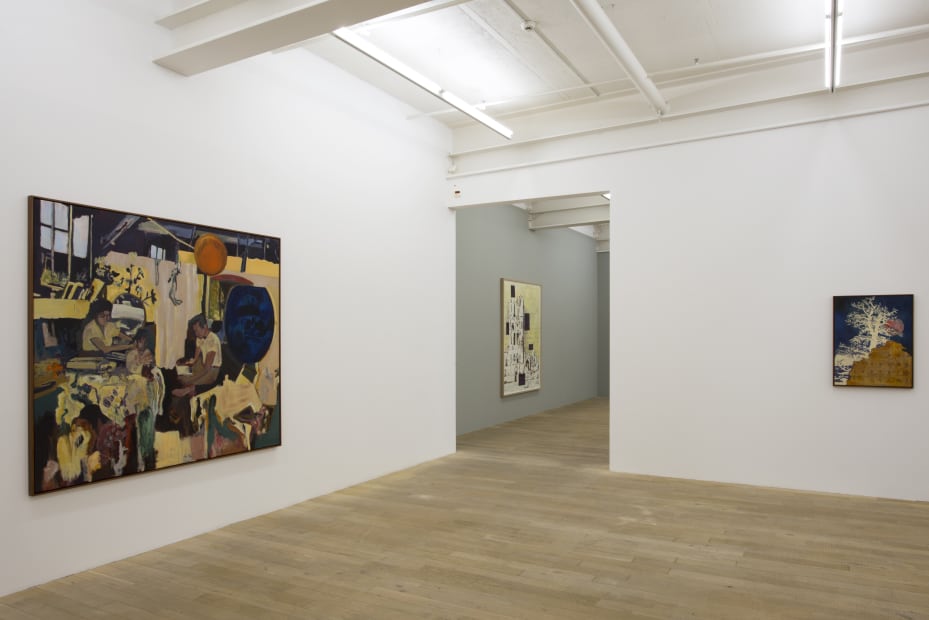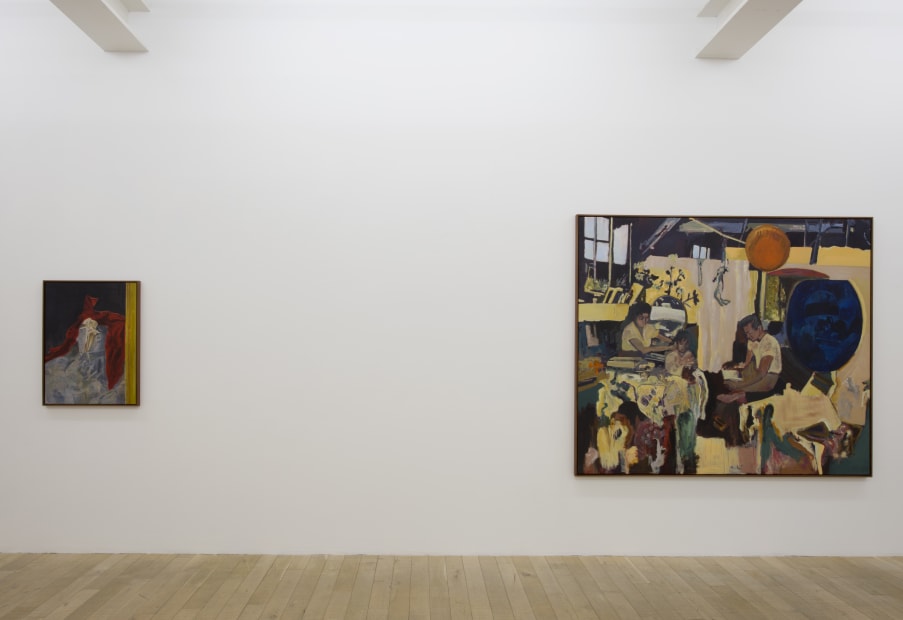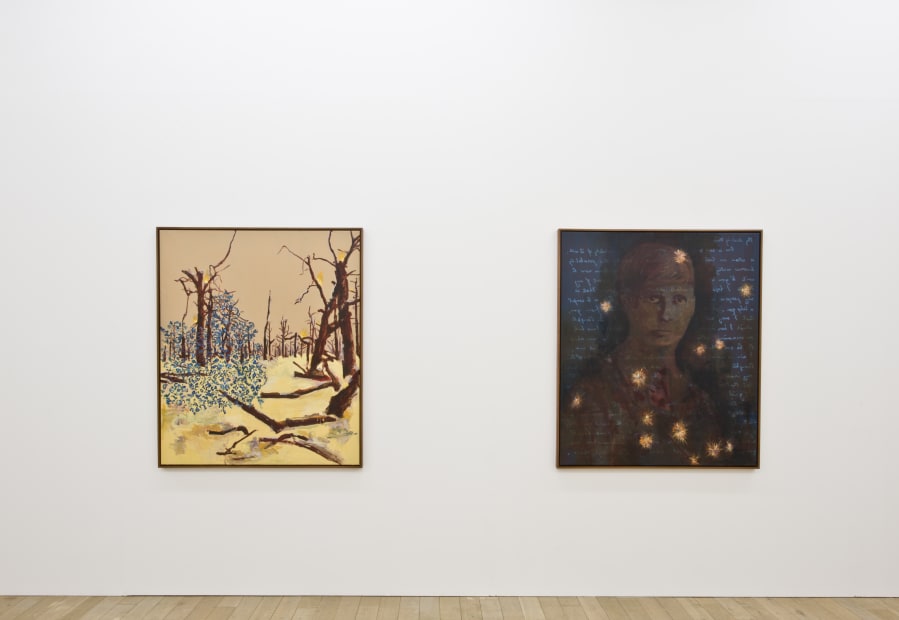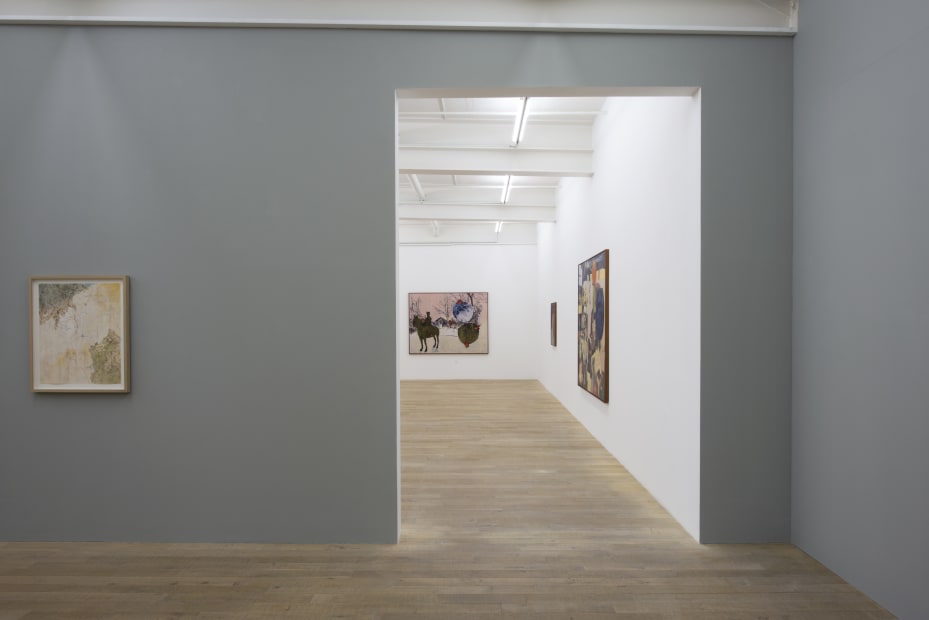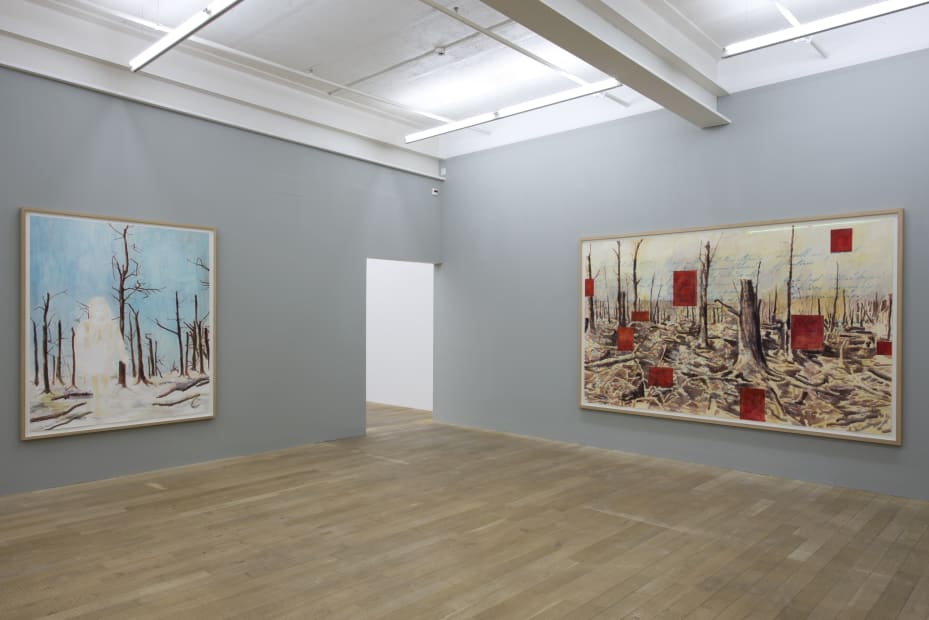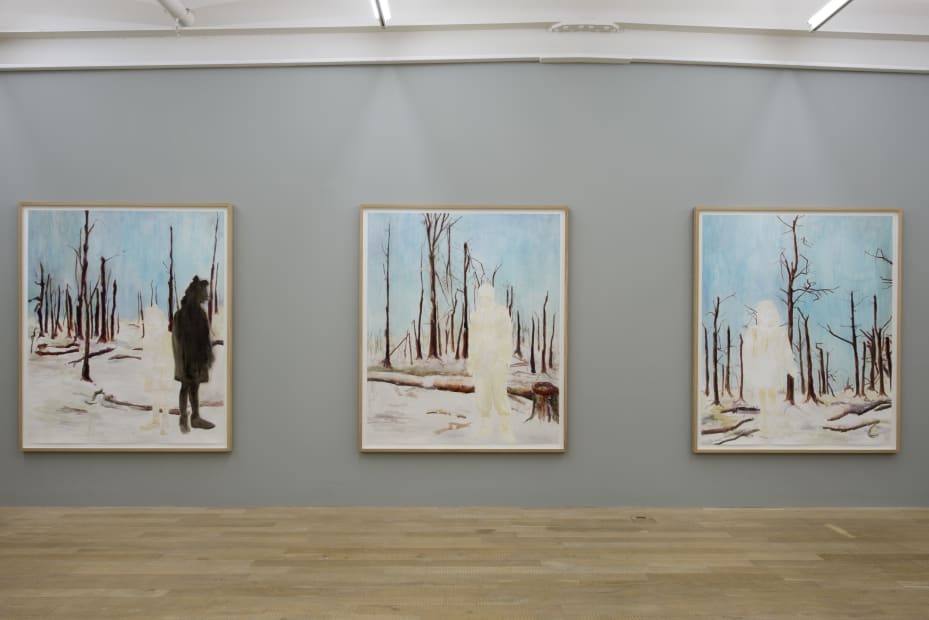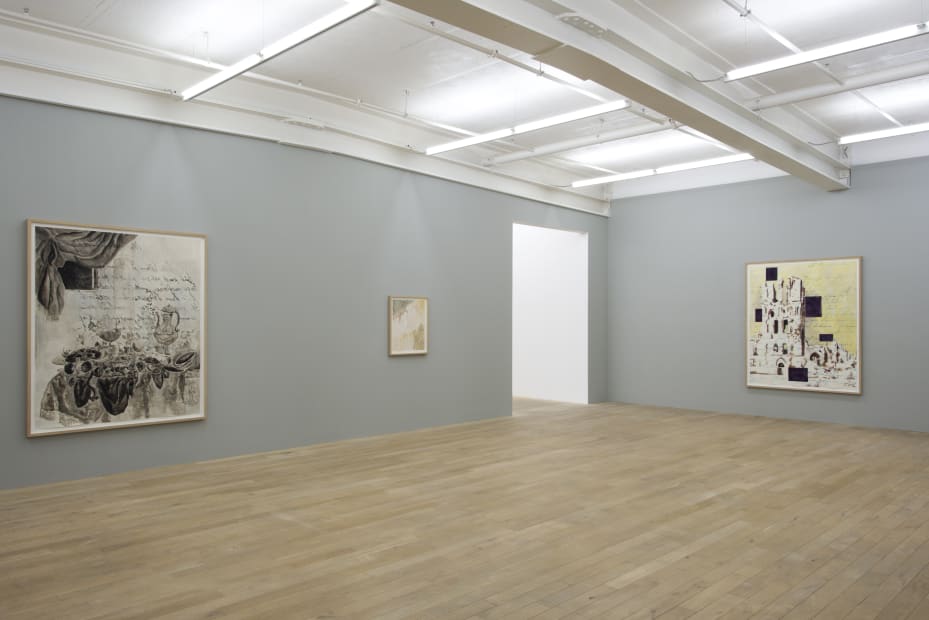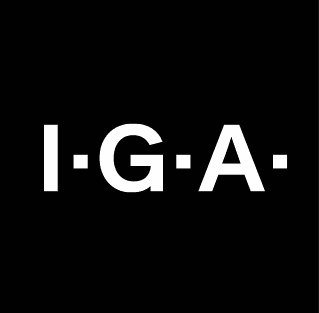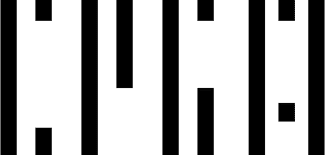Uwe Wittwer: Im WaldeGalerie Peter Kilchmann, Zahnradstrasse, Zurich
After one year of cooperation Galerie Peter Kilchmann is pleased to present Uwe Wittwer’s first solo exhibition at the gallery, Im Walde (In the Woods). Wittwer was born in 1954 in Zurich where he still lives and works.
-
 Uwe WittwerIm Walde (In the Woods), 2018Oil on canvas130 x 110 cm (51.2 x 43.3 in.)
Uwe WittwerIm Walde (In the Woods), 2018Oil on canvas130 x 110 cm (51.2 x 43.3 in.)
133 x 113 cm (52.4 x 44.5 in.), framed -
 Uwe WittwerWinterlandschaft (Winter Landscape), 2018Oil on canvas151 x 196 cm (59.4 x 77.2 in.)
Uwe WittwerWinterlandschaft (Winter Landscape), 2018Oil on canvas151 x 196 cm (59.4 x 77.2 in.)
153 x 198 cm (60.2 x 78.0 in.), framed -
 Uwe WittwerWaldstück (Forest Piece), 2018Oil on canvas150 x 196 cm (59.1 x 77.2 in.)
Uwe WittwerWaldstück (Forest Piece), 2018Oil on canvas150 x 196 cm (59.1 x 77.2 in.)
153 x 198 cm (60.2 x 78.0 in.), framed -
 Uwe WittwerBeobachter (Observer), 2018Oil on canvas150 x 195 cm (59.1 x 76.8 in.)
Uwe WittwerBeobachter (Observer), 2018Oil on canvas150 x 195 cm (59.1 x 76.8 in.)
153 x 198 cm (60.2 x 78.0 in.), framed -
 Uwe WittwerWintertag (Winter's Day), 2018Oil on canvas170 x 195 cm (66.9 x 76.8 in.)
Uwe WittwerWintertag (Winter's Day), 2018Oil on canvas170 x 195 cm (66.9 x 76.8 in.)
173 x 197.5 cm (68.1 x 77.8 in.), framed -
 Uwe WittwerBlauer Spiegel (Blue Mirror), 2018Oil on canvas170 x 195 cm (66.9 x 76.8 in.)
Uwe WittwerBlauer Spiegel (Blue Mirror), 2018Oil on canvas170 x 195 cm (66.9 x 76.8 in.)
173 x 197.5 cm (68.1 x 77.8 in.), framed -
 Uwe WittwerLandschaft nach Friedrich (Landscape after Friedrich), 2018Oil on canvas80 x 61 cm (31.5 x 24.0 in.)
Uwe WittwerLandschaft nach Friedrich (Landscape after Friedrich), 2018Oil on canvas80 x 61 cm (31.5 x 24.0 in.)
82.5 x 63 cm (32.5 x 24.8 in.), framed -
 Uwe WittwerMann mit roten Tuch (Man with Red Cloth), 2018Oil on canvas80 x 61 cm (31.5 x 24.0 in.)
Uwe WittwerMann mit roten Tuch (Man with Red Cloth), 2018Oil on canvas80 x 61 cm (31.5 x 24.0 in.)
82.5 x 63 cm (32.5 x 24.8 in.), framed -
 Uwe WittwerRuin (Ruine), 2018Watercolour on paper67 x 55 cm (26.4 x 21.7 in.)
Uwe WittwerRuin (Ruine), 2018Watercolour on paper67 x 55 cm (26.4 x 21.7 in.) -
 Uwe WittwerStill Life nach van Beyeren (Still Life after van Beyeren), 2018Watercolor on paper179 x 149 cm (70.5 x 58.7 in.)
Uwe WittwerStill Life nach van Beyeren (Still Life after van Beyeren), 2018Watercolor on paper179 x 149 cm (70.5 x 58.7 in.)
191 x 161 cm (75.2 x 63.4 in.), framed -
 Uwe WittwerRuine (Ruin), 2018Watercolor on paper180 x 150 cm (70.9 x 59.1 in.)
Uwe WittwerRuine (Ruin), 2018Watercolor on paper180 x 150 cm (70.9 x 59.1 in.)
191 x 161 cm (75.2 x 63.4 in.), framed -
 Uwe WittwerIm Walde (In the Woods), 2018Watercolor on paper180 x 150 cm (70.9 x 59.1 in.)
Uwe WittwerIm Walde (In the Woods), 2018Watercolor on paper180 x 150 cm (70.9 x 59.1 in.)
191 x 161 cm (75.2 x 63.4 in.), framed


